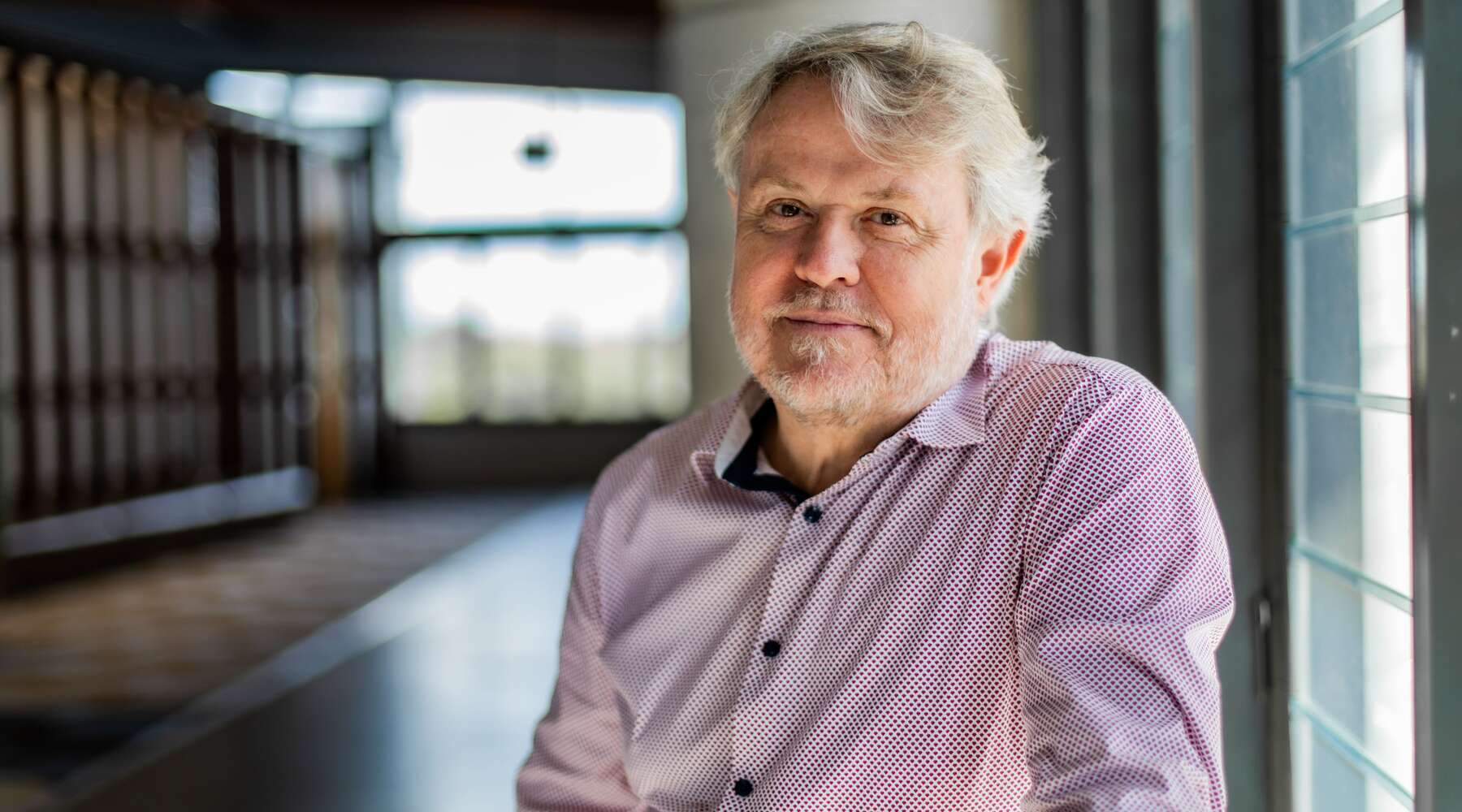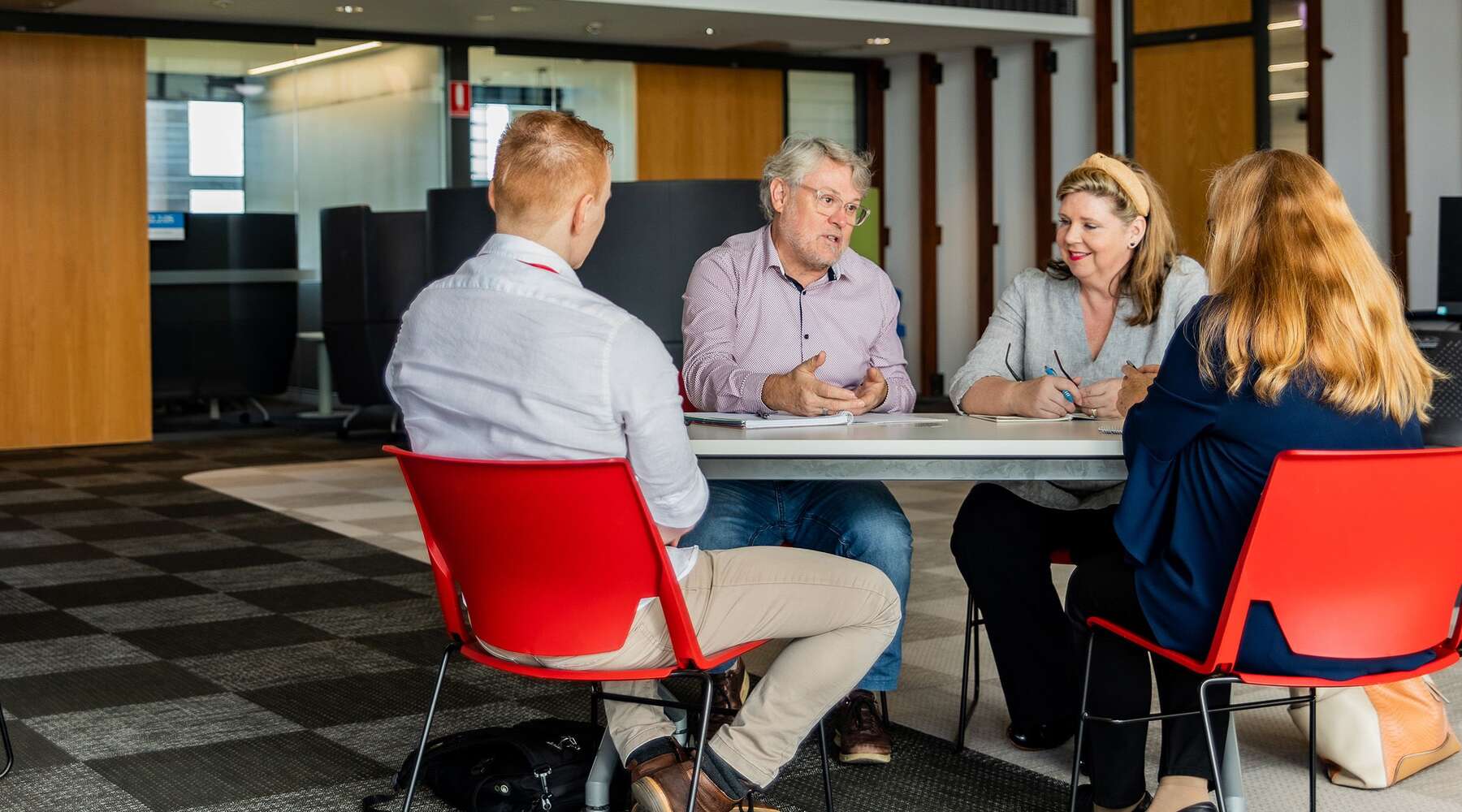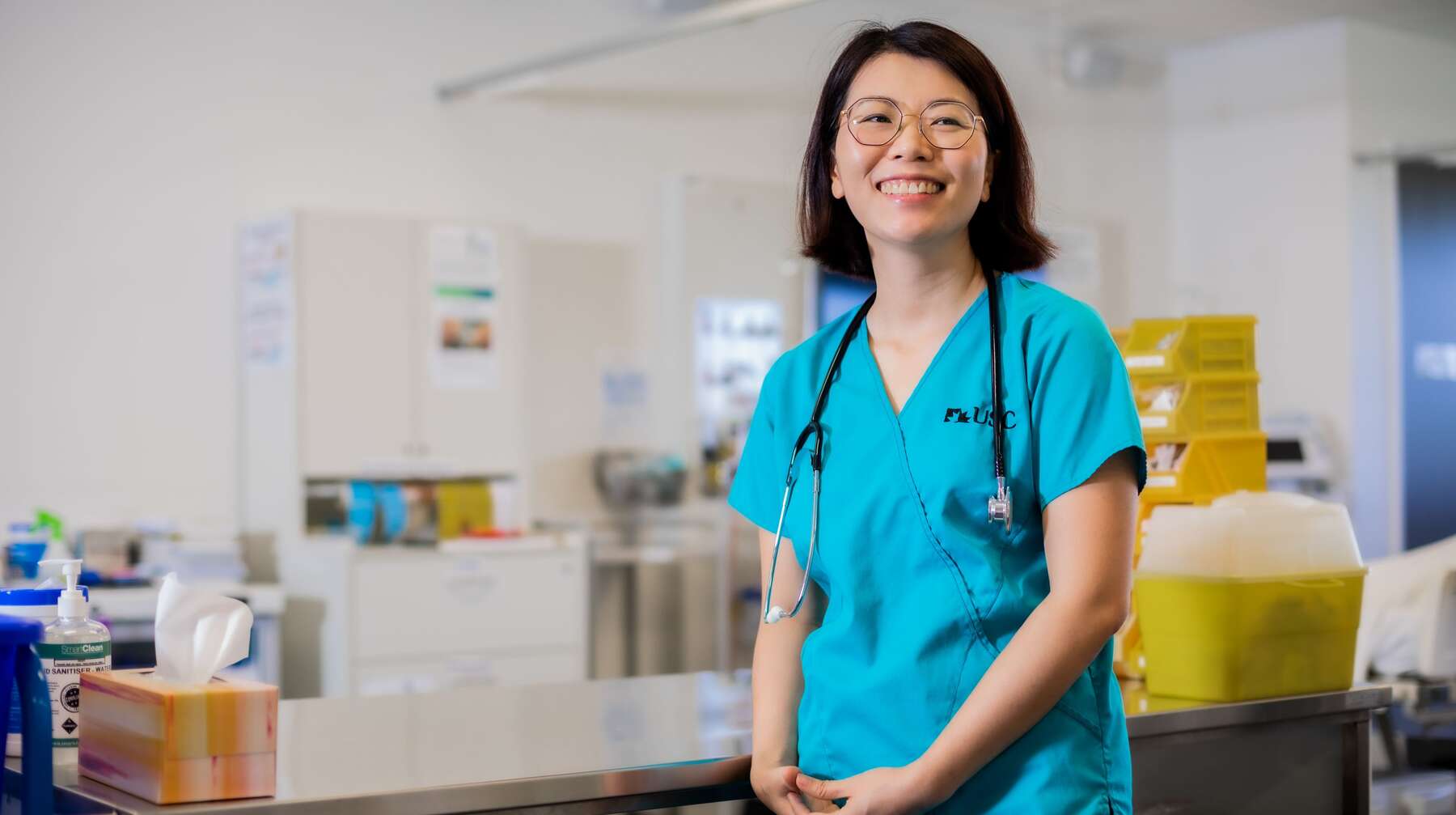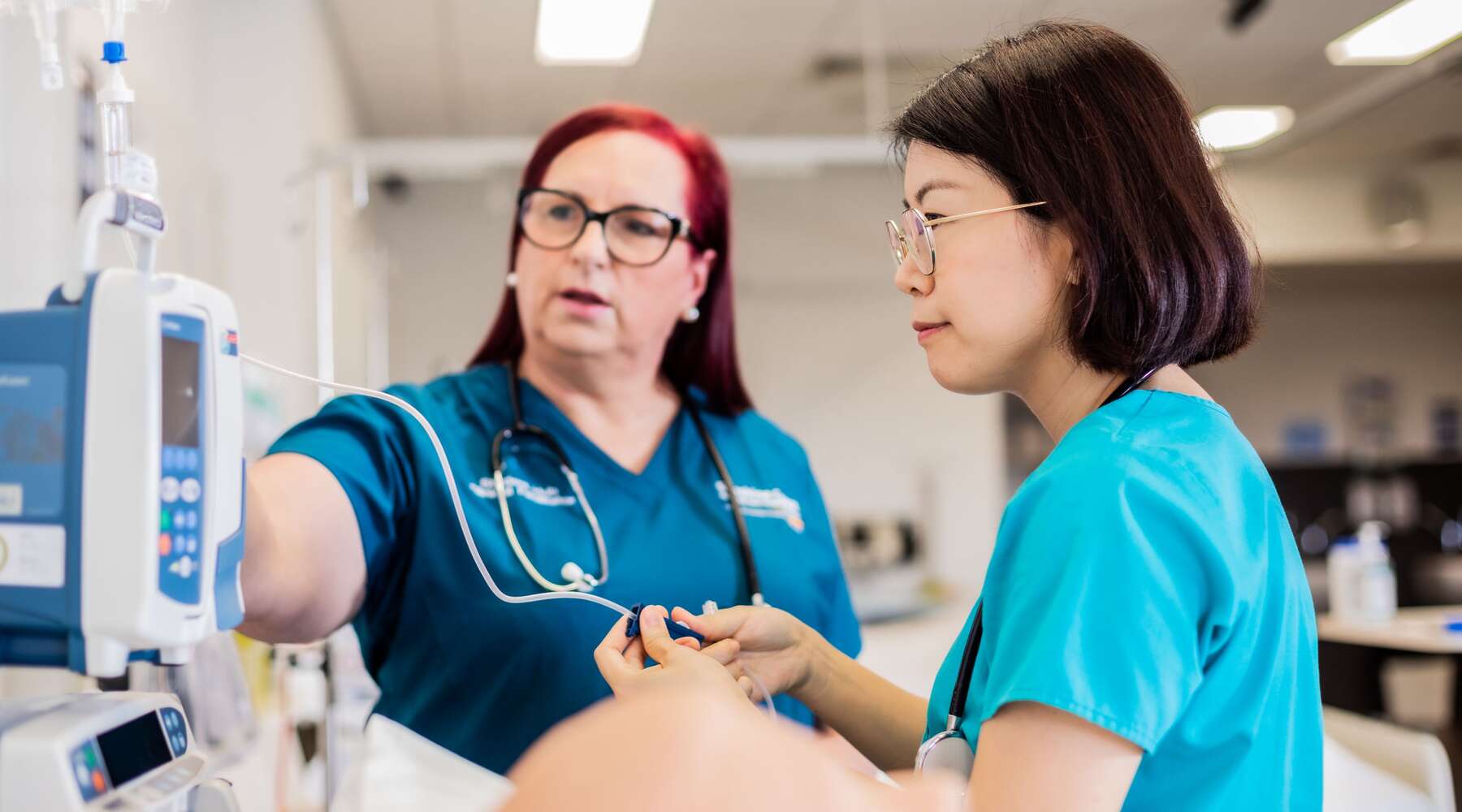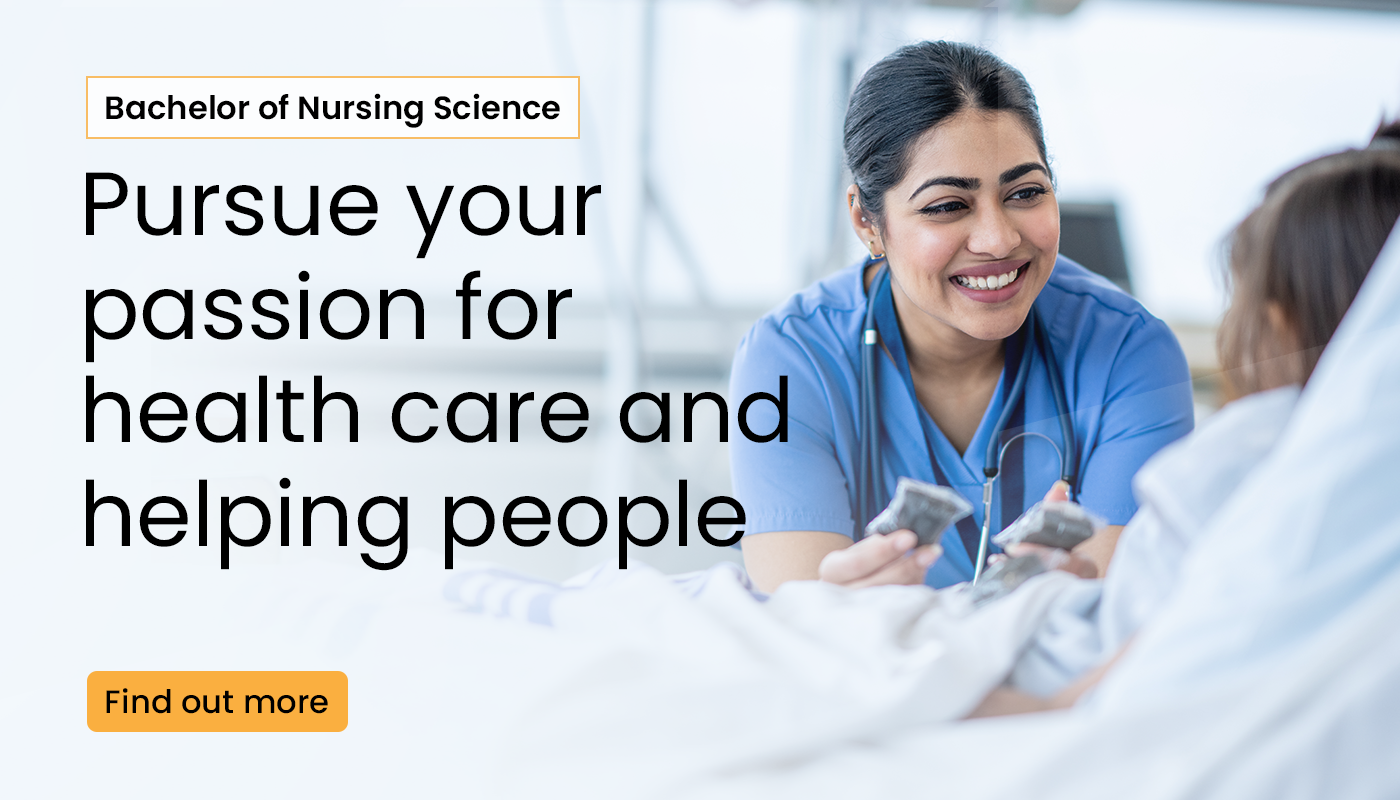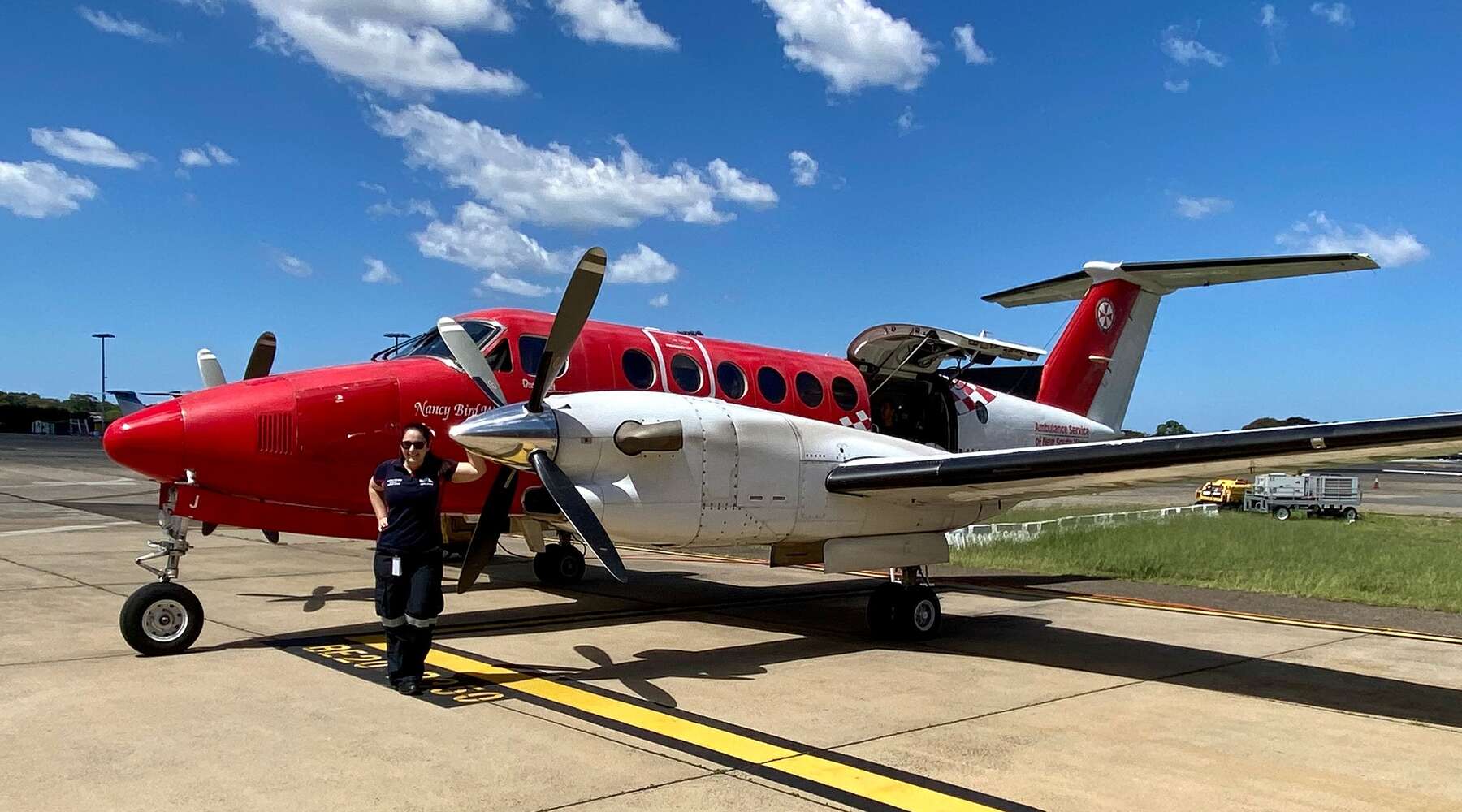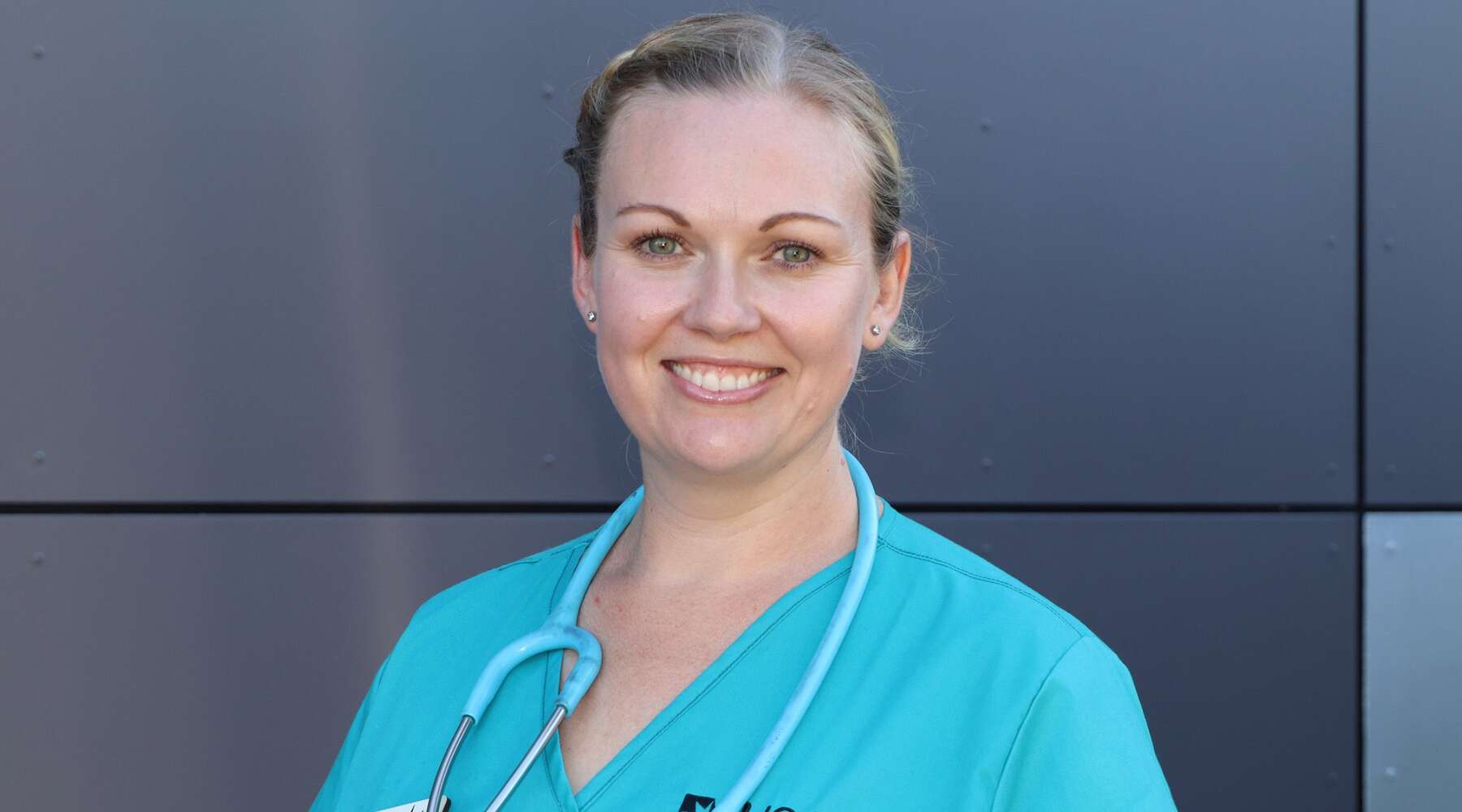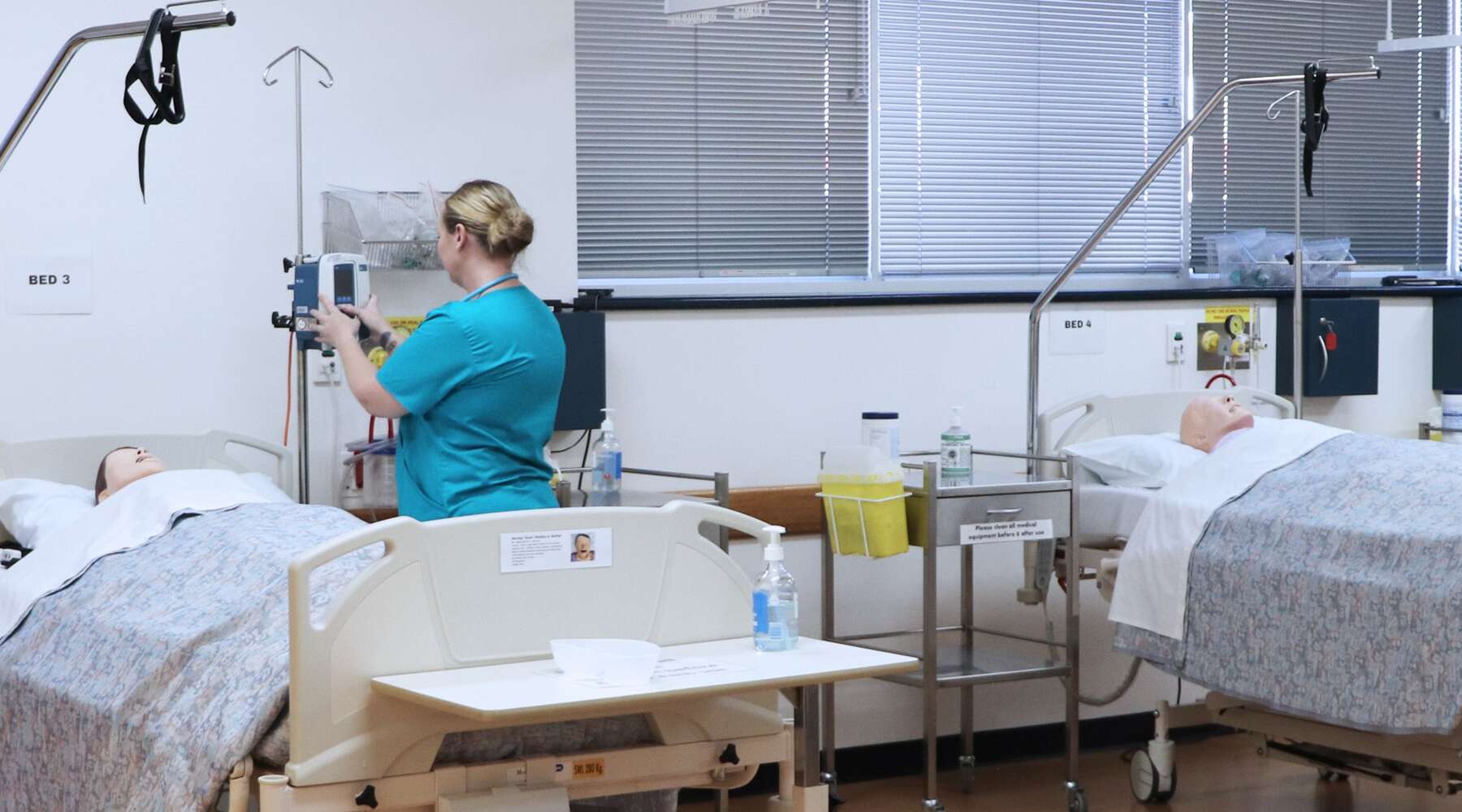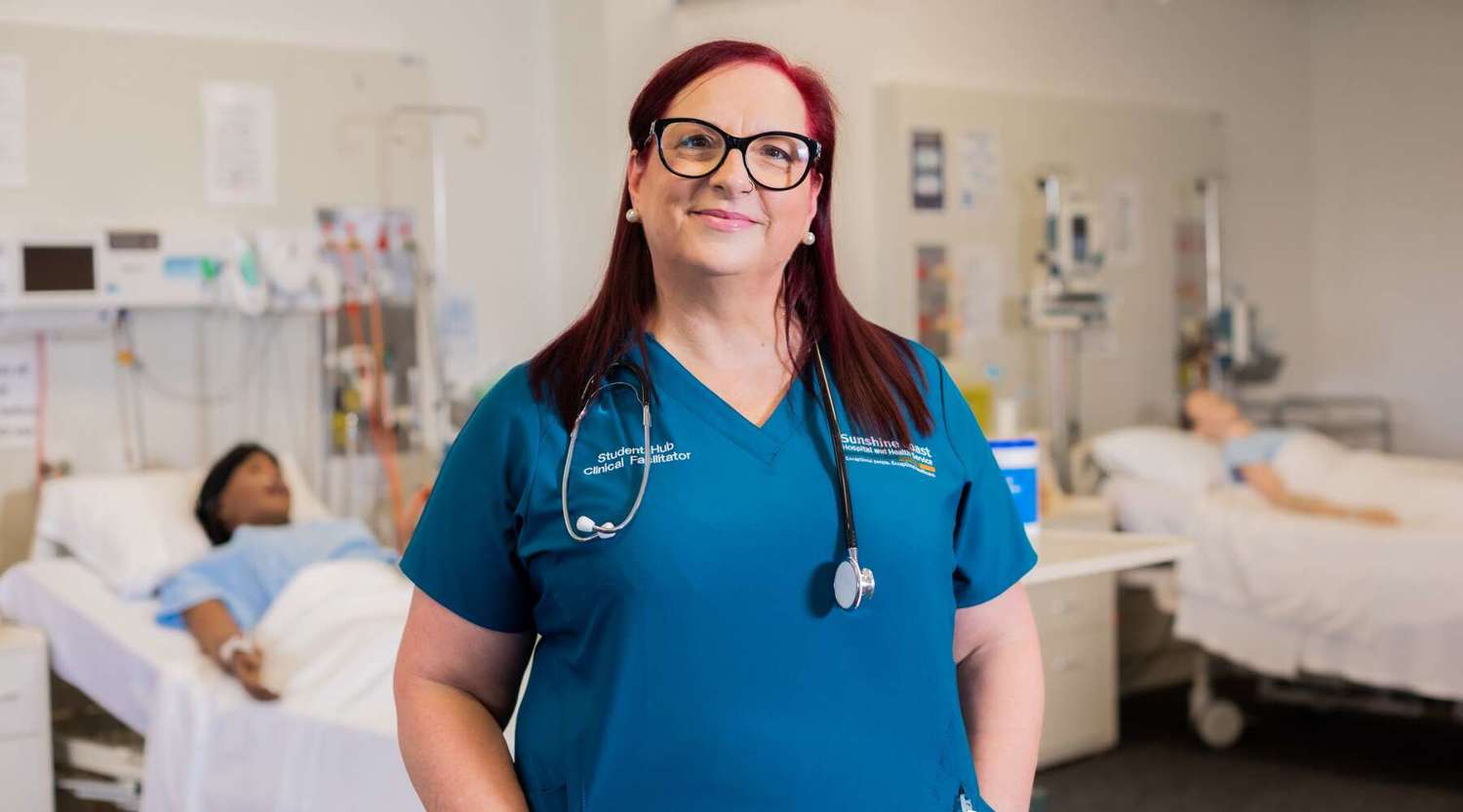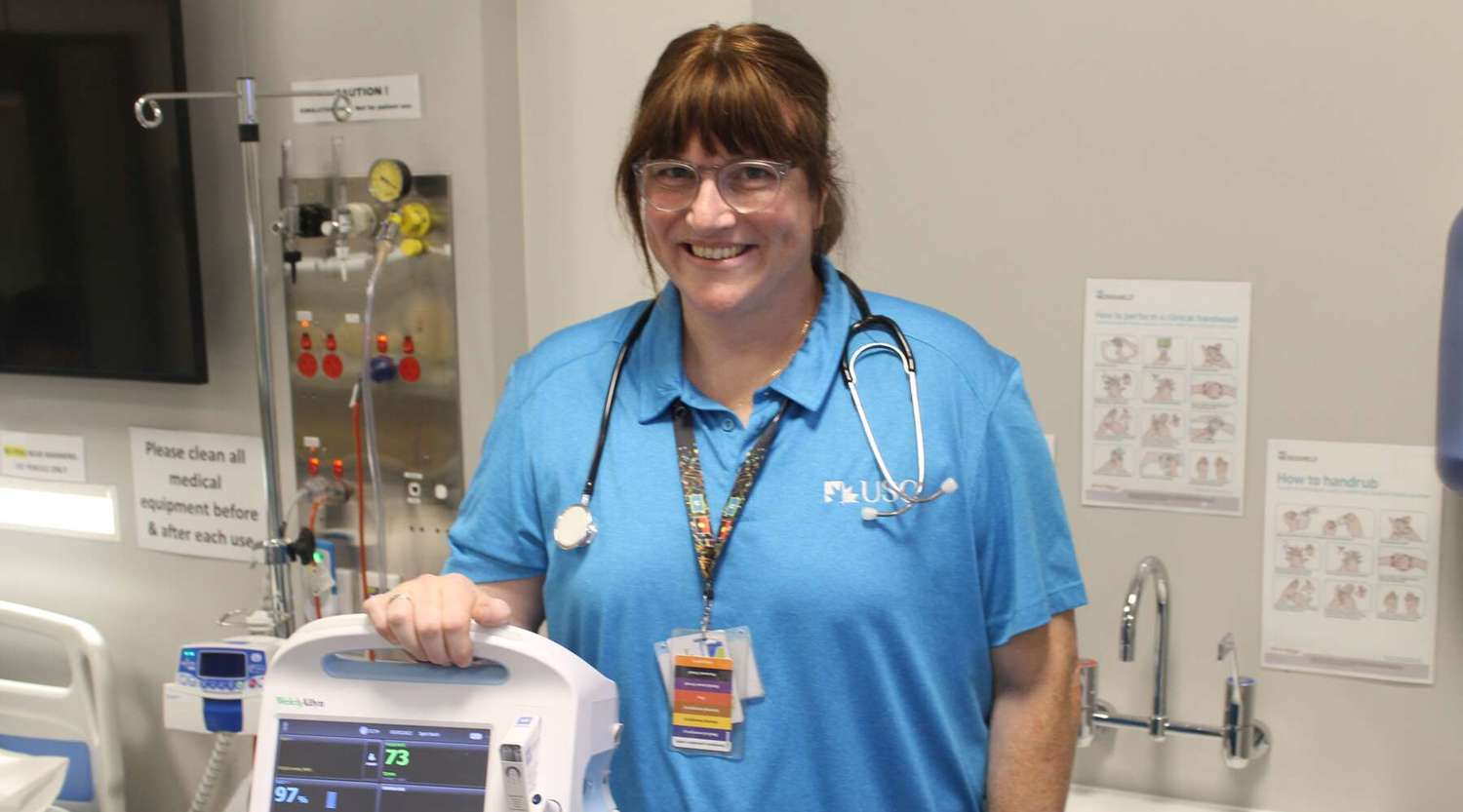Nurses have often been on the receiving end of exceptional medical care. Sometimes that is what inspires them to help others through hard times.
But the global pandemic has not made their jobs easy.
We spoke to student nurses, mid-career nurses and nursing educators now considered "veterans" of their field... why did you choose nursing, and why do you stay?
Dr John Rosenberg
Senior Lecturer Nursing, USC Caboolture
It’s a really difficult time for nursing at the moment, and COVID has just hit us like a truck.
We’re all figuring out the best way to get through it. The challenges are always there, so I need to return always to my core values – connection, compassion and curiosity – and remember how they underpin what I do.
I hope that we are all able to reflect on what gives us meaning and purpose in our lives and find ways to express that in our work.
As a nurse academic, I get to have an impact on students’ learning and, hopefully, be a positive influence on the kind of nurse they’ll become –and I love seeing students that I’ve taught walking across the stage at their graduation.
Whether it’s a quiet day or a chaotic one, whether assisting a calm or distressed person, there’s something meaningful happening to which I can contribute – and that makes it all worthwhile. For me, I found that in palliative care.
Nursing is fundamentally about connecting with people and that’s taken me to conferences in the UK, Ireland, Switzerland, Austria, India, Singapore, New Zealand and Canada.
I hope to retire in my early to mid-60s, but I have no intention of stepping away from nursing altogether.
Jade Chen
Sleep Health Clinician
Bachelor of Nursing, UniSC Sunshine Coast
At the height of the pandemic, I was deployed to a pop-up vaccination clinic where our team of six safely administered more than 180 vaccines within five hours.
That was an intense but great experience because nurses operate like this every day and it comes down by being organised, creative, collaborative, and practical.
Nurses accept the situation quickly and focus on things within their control, while professionalism and team spirit motivates them to embrace and overcome challenges.
I chose to study nursing to provide better care for my family and others. I was also inspired by the nurses who provided exceptional care to a close family member who was admitted to hospital six times in one year.
The knowledge and experience I am gaining at UniSC makes me confident that I can continue that good work one day.
I believe a life-long learning attitude and leadership qualities will be essential in my career.
Paula Lambert
Retrieval Nurse
UniSC Bachelor of Nursing, 2013
I travel to provide mobile intensive care to neonatal babies and pediatric patients.
We are often thrust into the lives of families on the worst day of their lives.
I feel so privileged each day that I can go to work, jump on a plane, helicopter or ambulance and travel all over New South Wales to support them.
I feel lit up every day by helping all those around me, whether it’s a family or the local medical staff.
Since the pandemic, nurses and many in the medical profession are struggling. Lucky for me, I have managed to see a different side of the pandemic. I love my career, now more than ever.
I am glad I became a nurse. Every day I am faced with challenges, obstacles and scenarios which often push me to the limits, but I persevere to help someone in their time of need.
I’ve now started a Masters of Nursing in Clinical Education, to one day impart my knowledge and experiences to others.
Melissa Pruys
Bachelor of Nursing, UniSC Fraser Coast
My son was delivered in an emergency situation and the high level of care and attention I received that week was enough for me to finally enrol in a Nursing degree.
Nurses are often selfless and get through the tough times by understanding that unwell, scared, and uncertain people need a dedicated team working to achieve the best outcomes.
This results in a camaraderie that not everyone can understand, but it helps nurses get through tough times together.
Every lesson in my nursing journey has been a stepping stone. I’m learning skills including communication techniques, groupwork, practical skills and theoretical knowledge.
We then put it all into practice on ‘placement’ at real workplaces – an eye-opening experience full of opportunities that helps us decide what path our future might take.
Despite a few life twists and turns, my desire to study nursing never faulted. I want to create a stable career path for myself and my family.
Kristine Murphy
UniSC Academic and Clinical Facilitator
Nurses were once viewed as doctor’s ’assistants’ - but that perception has now long gone.
Career pathways have changed dramatically, with nurses becoming leaders in healthcare, CEOs, academics, educators and more.
Nurses play a crucial role within a multidisciplinary team approach to patient care planning.
I have had the privilege of working at world-renowned cancer clinics and advocated for patient safety before I became an educator.
Today - playing a role in shaping our future nurses and seeing them succeed brings me immense joy, as I near the 40th anniversary of my own graduation. Many of my cohort are still close friends.
Nurses have choices and opportunities so I encourage them to find their ‘happy place’ by combining multiple part-time roles to keep it interesting. There are no rules anymore.
But when it comes to caring for patients, this is fundamentally what drives me every day to be the best nurse possible – to help people through the tough moments when they are scared and vulnerable.
I applaud the need for nurses to recognise when they need to take a step back and look after themselves. Self-care is something many nurses still find difficult as they are so focused on giving to others.
But despite this, I would never NOT be a nurse. It is who I am to the core.
Ali Moloney
Intensive Care Nurse, UniSC higher-degree student
There have been so many bittersweet moments in my career, and some are so ridiculously happy that it brings a tear to my eye.
I've seen patients recover from ‘impossible’ situations telling me they remember my voice from intensive care.
It started out because I wanted to help people, and because my mum is deaf.
She was treated very differently when I was young. I realised that by being a nurse, I could make a difference by treating every patient holistically.
I find calm in emergency situations and this approach becomes a part of every reaction and patient assessment and reassessment. Even if a patient is upset, angry or devastated, I remember that is not about me. I need to be able to show empathy, support, and care for them, but not take it personally.
We take care of people at their very best, and at their very worst. We have to problem-solve and consider the bigger picture. How you process and reflect is what gets you through.
We get to help people and their families recover and heal, understand their conditions, and respect their wishes – and that’s what lights me up.
Media enquiries: Please contact the Media Team media@usc.edu.au


